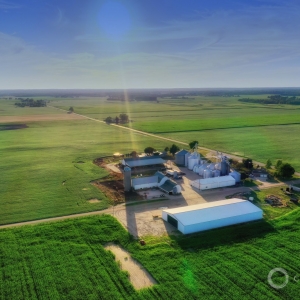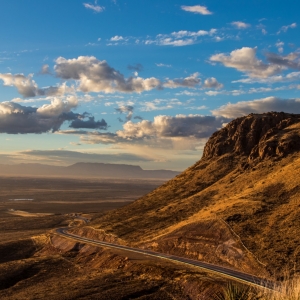The Stream, September 25, 2020: Houston Debates Storm Surge Barrier
The Global Rundown
Recent near disastrous hurricanes in Houston, Texas have brought back up a decades-old debate about building a storm surge barrier. Hurricane Beta is the third hurricane to hit the U.S. Gulf Coast in a month. A study in the Kansas River will help water-resource manages effectively respond to environmental disasters. Legislation to legalize floodplain water harvesting in New South Wales failed. Residents of a county in Kentucky continue to fight for clean, affordable water.
“I would never let my baby drink it, it smells bad and it tastes bad.” – Florence Reed, a resident of Martin county, Kentucky. Reed, along with 96 percent of the residents of Martin county, rely primarily on bottled water for drinking out of safety fears linked to coal mining and mismanagement at the utility. The deep mistrust, residents and advocates say, is a legacy of how the water infrastructure has been neglected and mismanaged for years. The county’s water problems first came into sharp focus in October 2000 when a local coal company spilled 300 million gallons (1.16 billion liters) of coal slurry containing high concentrations of arsenic and mercury into nearby waterways. Since then, advocate groups have forced greater transparency and accountability from the utility, but most people still do not trust the water. The Guardian
Latest WaterNews from Circle of Blue
One Michigan County Tells of a Nation Plagued By Pollution – Farms housing thousands of animals are one of several sources contaminating the Pine River and dividing a mid-Michigan community.
By The Numbers
90 million The number of gallons of oil and hazardous substances a strong Category 4 hurricane with a 25-foot storm surge could release into neighborhoods of Houston, Texas and into the Galveston Bay, according to estimates from researchers at Rice University. After Hurricane Laura just barely missed the city last month, a debate resurfaced about whether the Houston area should build a massive and expensive barrier to protect against storm surge. A variety of concerns about the barrier, including a price tag of up to $32 billion and possible environmental effects, have been roadblocks in its construction in the past. The U.S. Army Corps of Engineers and the state are reviewing a proposed project that would build floodgates and constructing a beach and dune system and undertaking ecosystem restoration projects along the Texas coast. AP
60 The number of rescues and evacuations of people in floods caused by Hurricane Beta, according to Houston Fire chief Samuel Pena. Beta weakened to a tropical depression on Tuesday as it crawled inland along the Texas coast south of Houston. Rain submerged roads in the city, swamping cars, shutting school offices, courts and energy shipping ports. Beta is the third storm in the U.S. Gulf of Mexico in less than a month, following Hurricanes Laura and Sally. Reuters
Science, Studies, and Reports
The U.S. Geological Survey and partners are set to release a harmless, bright red fluorescent dye into the Kansas River next week to provide a better understanding of how quickly water flows from one location to another. Water-resource managers can use this information to effectively respond to potential critical events such as harmful algal blooms or contaminant spills that may make the water unsafe for the public to use. The dye, known as Rhodamine Water Tracer (WT), has been used in hydraulic studies for decades. United States Geographical Survey
On the Radar
The Government of New South Wales’ plan to legalize floodplain water harvesting was defeated in parliament, leaving the status of the practice in limbo. Labor, the Greens, independents, Shooters, Fishers and Farmers, the Animal Justice party and One Nation joined forces in the upper house on Tuesday night to defeat the regulation, which would have allowed “passive take” of floodwaters. The issue of floodplain harvesting has been festering, amid fears that inflows in the top of the Murray-Darling system have been reduced substantially, compared to historical averages. The Guardian
Jane is a Communications Associate for Circle of Blue. She writes The Stream and has covered domestic and international water issues for Circle of Blue. She is a recent graduate of Grand Valley State University, where she studied Multimedia Journalism and Women, Gender and Sexuality Studies. During her time at Grand Valley, she was the host of the Community Service Learning Center podcast Be the Change. Currently based in Grand Rapids, Michigan, Jane enjoys listening to music, reading and spending time outdoors.







Leave a Reply
Want to join the discussion?Feel free to contribute!